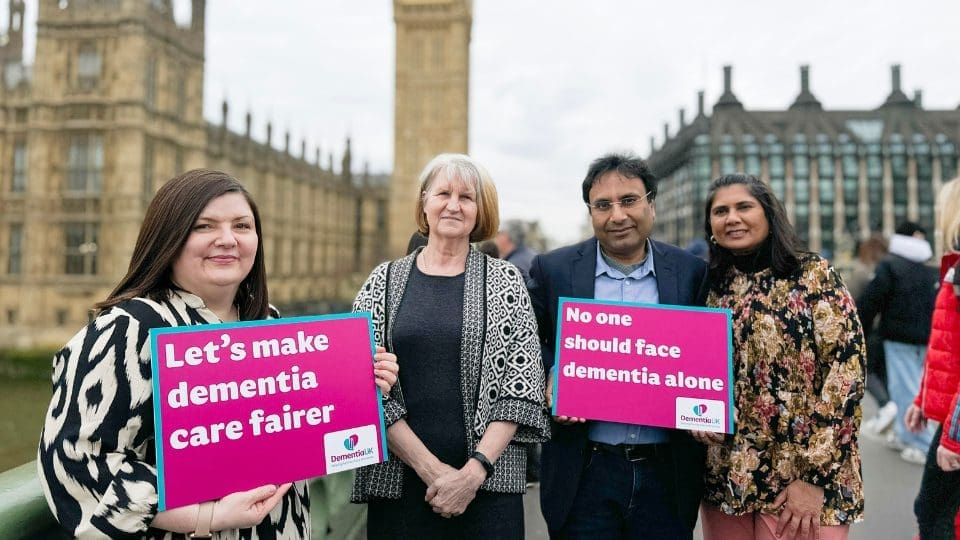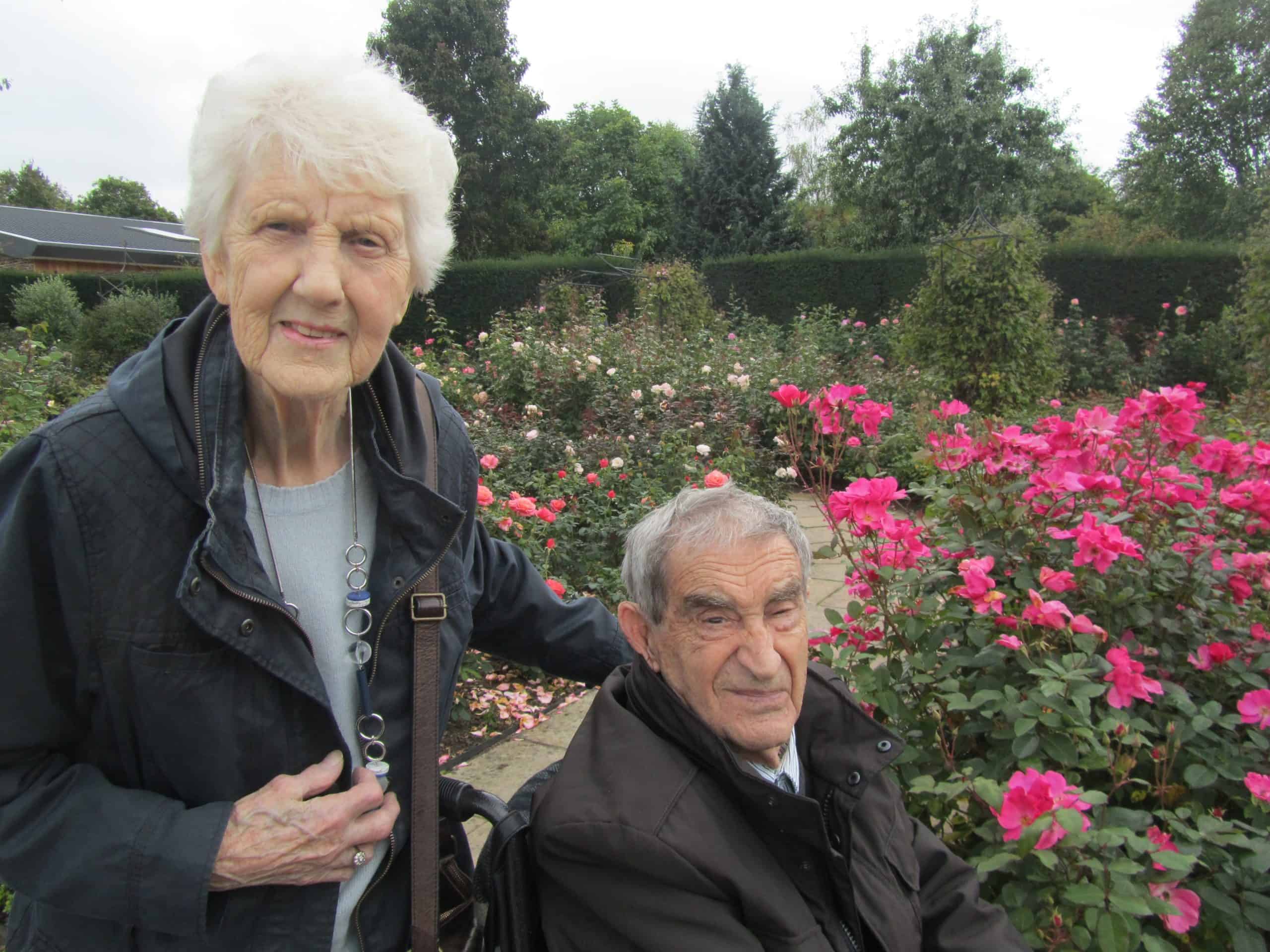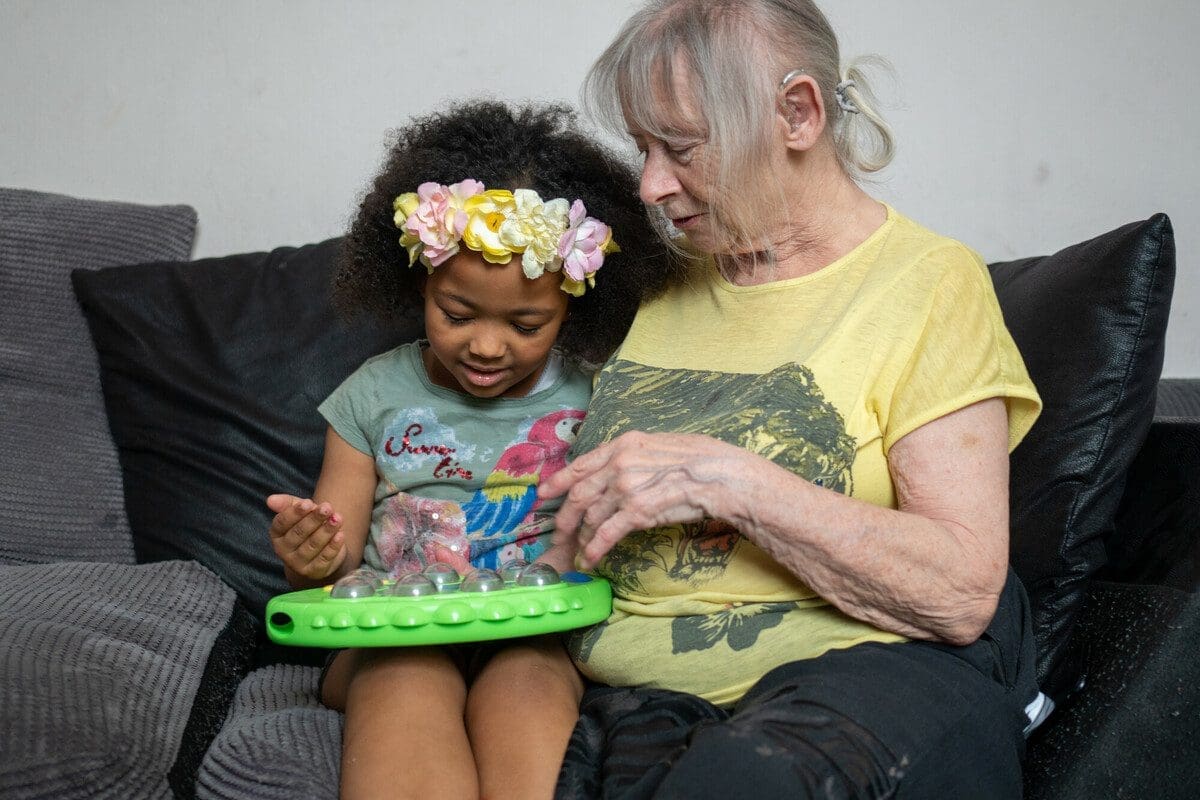
Fix the funding: make care fairer for people with dementia
We need the Government to urgently review the continuing healthcare funding process so that more people with dementia can access the support.
As part of Dementia UK’s ‘Fix the funding’ campaign that is calling for an urgent review of the NHS continuing healthcare process, Annette shares her experience of how the process is flawed for people living with dementia.

Dad was diagnosed with vascular dementia in March 2019. He was already in the late stages and had many other health issues. Dad was registered blind, had a diagnosis of depression, type 2 diabetes, and an indwelling catheter which he pulled out on many occasions.
My mum was Dad’s main carer. I gave up my job as a litigation solicitor in May 2020 so I could be around more to help care for Dad. My mum is in her 80s and her health deteriorated significantly whilst having to be a full-time carer.
I knew a little bit about dementia before Dad was diagnosed. But until you’re caring for someone you have no idea of the impact dementia has on your whole life. You can’t imagine what it’s like. It was such a struggle to get any help and we felt we were on our own. It was like wading through treacle.
I applied for NHS continuing healthcare funding (CHC) in September 2019. I felt angry, frustrated and stressed throughout the entire process. As a retired solicitor, I thought my skills would help in my understanding of the CHC process. But I didn’t feel I could fairly participate in a process which was so flawed.
The Decision Support Tool (DST) is inherently prejudicial against people living with dementia. I didn’t feel assessors understood the complexities of dementia and they didn’t take into account Dad’s cognitive and psychological needs. Assessors were focused on finding reasons why my dad was not eligible rather than taking a balanced approach. My dad’s needs were minimised and my views were discounted and ignored.
The assessors and multidisciplinary team (MDT) members had not met my dad or been involved in his care. There were no discussions with the nursing home in advance of undertaking the DST. They relied on care home records that were at times scant, and poorly worded. There was no dementia specialist involved in the process which would have helped the assessors to better understand Dad’s needs.
My initial CHC application was turned down. The language the assessors used was vague like “needs not complex” and “care interventions not lengthy.” They didn’t give any explanation as to what that meant and why they had reached that view.
My dad had a further DST carried out in March 2021, with the decision being yet again that my father was not eligible for CHC funding. He was in full-time care at this stage as his needs were so high and we were unable to safely care for him at home.
I appealed the decision again and my dad sadly passed away in May 2021. The appeal meeting took place over nine hours spread over three days in February 2022. I had to read copious amounts of distressing medical and care notes to be able to effectively participate in the appeal. The appeal was once again rejected, but then I was notified in May 2022 that on verification of the appeal minutes, the appeal was in fact successful.
How can the process take so long? People living with dementia are vulnerable and the timeframe is unacceptable. Families are physically and emotionally exhausted and drained due to providing care. Attempting to navigate their way through a minefield of health and adult social care to try and get support and invariably failing. We should not have to undergo a CHC process that is so tortuous and unfair.
I feel sorry for families who are going through this process. It is totally draining. My dad is no longer here but the CHC process has left a huge scar on me, and I feel incredible angry about the way he was treated. I want to do everything I can to make the process better for other families.

We need the Government to urgently review the continuing healthcare funding process so that more people with dementia can access the support.

Help us raise vital funds, improve care and support for families facing dementia and spread the word about our specialist dementia nurses.

Sharing your story with Dementia UK can help to inspire and reassure others who may be going through similar things.